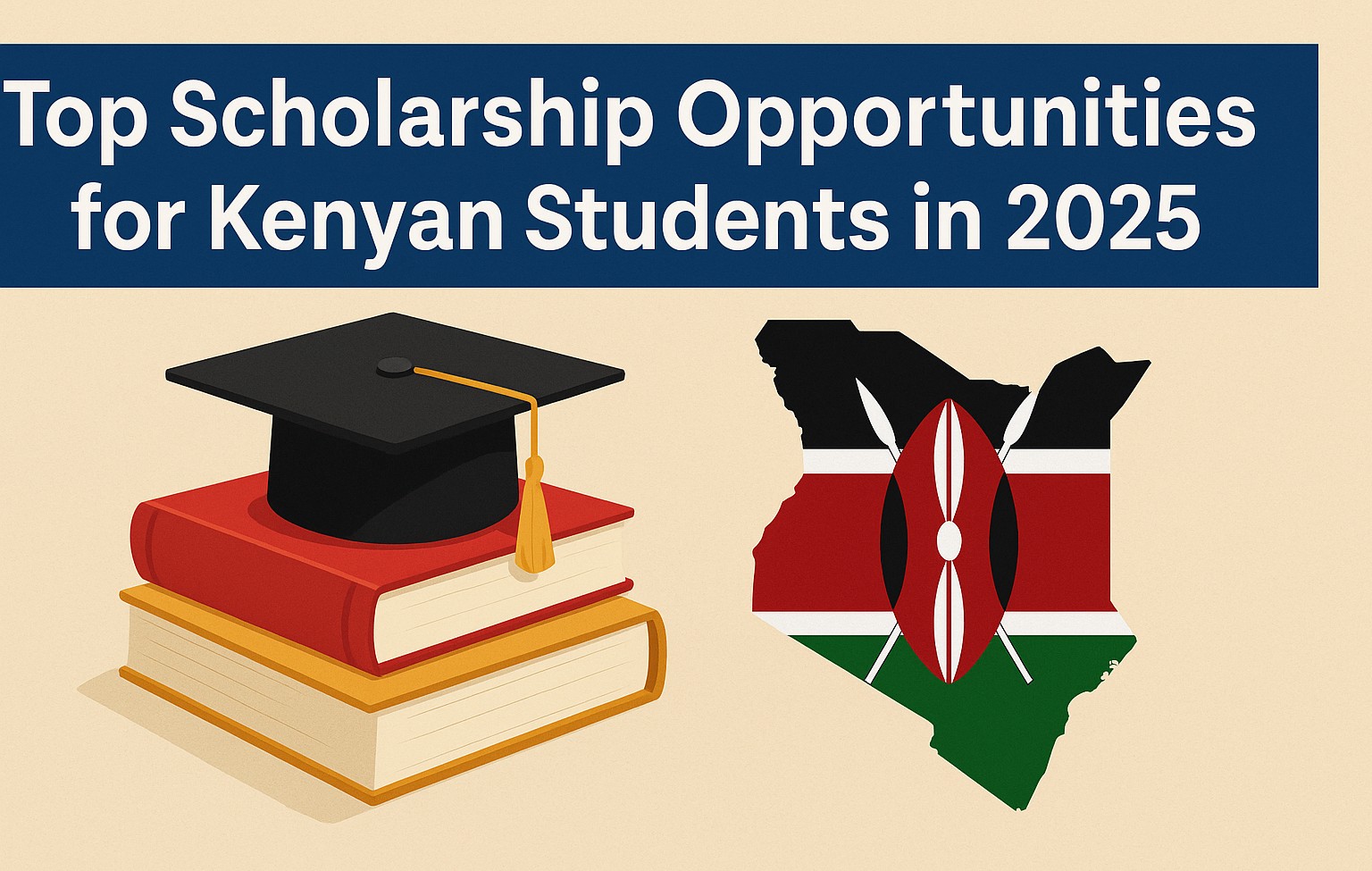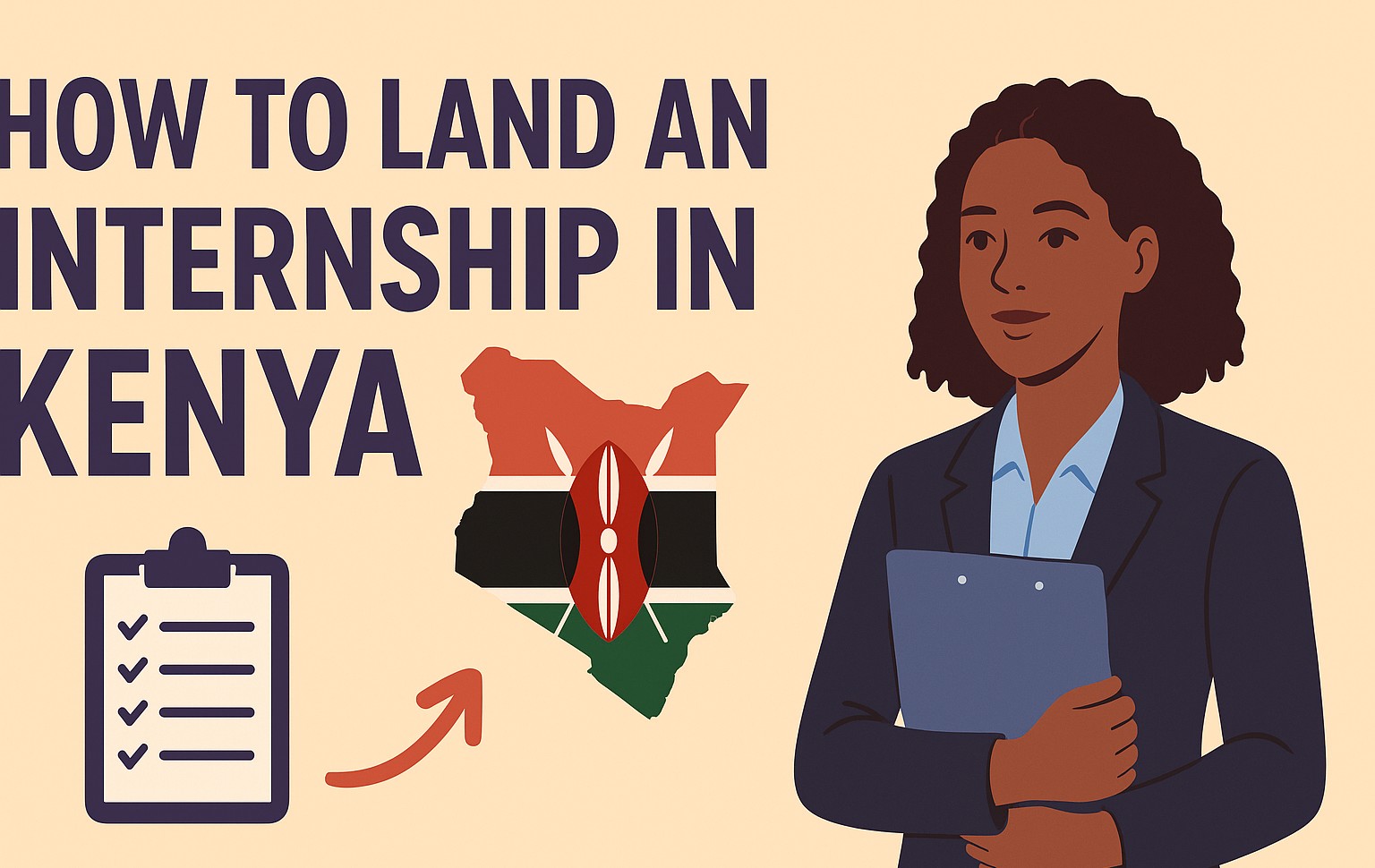

Titus Morebu
Author
Top Scholarship Opportunities for Kenyan Students in 2025 🎓
Explore top grants & fully funded scholarships for Kenyan undergraduates, postgraduates; tips, deadlines & application strategies.
Access to quality education is a powerful catalyst for change. But rising costs put a university, master’s, or PhD beyond reach for many promising Kenyan students. This guide reveals up-to-date scholarship and grant opportunities, how to apply, and strategies to succeed — so you can turn your academic dreams into reality. 🌍
Why Scholarships Matter in Kenya
Scholarships ease financial pressure, open doors to top institutions, and connect you to mentorship, networking and leadership opportunities. They’re especially critical in Kenya where many gifted students lack means.
Key Benefits
- Tuition & fees covered: You focus on studies, not payment stress.
- Living & travel support: Some scholarships also include stipends, housing or airfare.
- Global exposure: Study abroad programs broaden perspectives and open international career paths.
- Leadership & networks: Many programs include training, alumni networks, internships.
Main Types of Scholarships for Kenyans
Before you apply, know the different categories of financial aid available:
- Government & public scholarships and grants — funded by the Kenya government or public institutions.
- University/institutional scholarships — offered by the host university for incoming or current students.
- International & bilateral scholarships — funded by foreign governments, global bodies or institutions.
- NGO / foundation / private scholarships — by non-profits or private donors targeting specific demographics or fields.
Top Scholarship Programs Available to Kenyans (2025 & beyond)
1. Government & National Scholarships
- Higher Education Government Student Scholarship (HEF via Universities Fund) — Supports students in public universities and TVET colleges. Award levels typically range from 30% to 70% of tuition cost based on need. Applicants must be Kenyan and have received placement through KUCCPS. (Apply at hef.co.ke)
- Universities Fund eligibility scheme — Students pursuing bachelor’s, master’s, or doctoral degrees (within specified durations) qualify when placed by KUCCPS or admitted by universities. Some funding is conditional on meeting academic performance.
- HELB (Loans & Bursaries) — Though primarily a loan provider, HELB also offers bursaries and grants in special cases. Ideal for bridging shortfall gaps.
- MKU Foundation Scholarship (for Mount Kenya University students) — Covers one semester’s tuition, targeted at needy undergraduates already enrolled. Application deadlines open periodically.
- Ministry of Education / State Scholarships — The Ministry of Education regularly advertises scholarship slots (local & foreign) via its official portal under the “Scholarships” section.
2. University / Institutional Scholarships
- USIU-Africa Institutional Scholarships — Offers partial scholarships (e.g. 50% tuition) for select programs to Kenyan students, including civil servants pursuing certain degrees.
- St. Lawrence University Kenya Scholarship — Two full scholarships annually for Kenyan students covering tuition, fees, room & board (excluding travel & books).
3. International & Bilateral Scholarships
- Rhodes Scholarships (Kenya) — Two scholarships annually for postgraduate study; highly competitive and prestigious.
- GREAT Scholarships (UK) — Supports Kenyan students pursuing one-year taught postgraduate courses in the UK with £10,000 towards tuition.
- DAAD Scholarships (Germany) — Offers master’s, doctoral, research and in-region/in-country programs open to Kenyans across diverse fields.
- MEXT (Japan Government) Scholarships — For Kenyan students aiming for master’s or doctoral studies in Japanese institutions; application windows typically open annually.
- Fulbright Foreign Student Program — Grants for Kenyan graduate students to study or conduct research in the U.S.; includes living stipend, tuition and other benefits.
- Mandela Rhodes Scholarship — Available to African postgraduate students; includes full funding plus leadership development at South African institutions.
4. NGO / Foundation Scholarships & Themed Grants
- Amref International University / Mastercard Foundation “Learning for Life” Scholarship — Covers 50% of tuition and housing for female students from disadvantaged backgrounds in health-related programs.
- Aiducation International Scholarships — A Kenyan/Swiss non-profit giving merit-based scholarships to needy high school and tertiary students in Kenya.
- Scholarships for vulnerable or refugee students — Organizations like UNHCR and partner universities offer full undergraduate scholarships to displaced or refugee Kenyan (or African) students.
How to Choose the Right Scholarship
With many options, use these criteria to decide where to apply:
- Eligibility match: Check nationality, academic level (undergrad, master’s), field, GPA, language requirements.
- Funding coverage: Tuition only? Or also living stipend, travel, insurance?
- Deadline & application period: Many international scholarships open 6–12 months in advance — plan accordingly.
- Obligations & conditions: Some require you to return to Kenya or commit to service after completion.
- Institution reputation & network value: Scholarships tied to top global universities often bring prestige and contacts.
Tips to Boost Your Chances of Winning
Competition is fierce. These strategies help you stand out:
- Start early & track deadlines: Use a calendar or spreadsheet with alerts.
- Craft a compelling personal statement: Focus on your journey, challenges, goals, and how the scholarship will amplify your impact.
- Secure strong recommendation letters: Choose teachers, mentors or supervisors who know you well and speak to your potential.
- Maintain outstanding grades: Many scholarships require a minimum GPA or class rank.
- Demonstrate leadership & extracurriculars: Volunteer work, student clubs, community projects, innovation initiatives all matter.
- Tailor each application: Don’t reuse generic essays. Address each program’s unique mission or focus.
- Prepare for interviews or tests: Some scholarships include oral interviews, standardized exams (GRE, language tests), or assessments.
- Apply broadly: Don’t put all hopes on a single opportunity — diversify your applications.
Common Pitfalls to Avoid 🚫
- Missing deadlines — late applications are typically rejected outright.
- Ignoring eligibility fine print (e.g. requirement to be placed through KUCCPS).
- Neglecting supporting documents — transcripts, proof of income, identity, recommendation letters.
- Overpromising in essays or presenting unrealistic goals.
- Failure to follow formatting rules (word counts, file types) — small errors can disqualify.
Action Plan Checklist
- List scholarships you’re eligible for and their deadlines.
- Create a folder with required documents (certificates, transcripts, IDs, financial info, reference contacts).
- Draft essays/personal statements early and get feedback.
- Request recommendation letters at least 4–6 weeks ahead.
- Submit early rather than waiting till the last moment.
- After submission, follow up (if allowed) and monitor your inbox for further instructions or interview invites.
Final Thoughts
Scholarships offer a life-changing opportunity. While competition is steep, your dedication, smart planning and persistence can put you ahead. Start today: explore, apply, and believe in your potential. The doors to top universities and a brighter future are within reach — go claim them.
Gallery

Related Articles
3 articles
How to Apply for a Canadian Student Visa from Kenya in 2025 🍁
Learn the complete, up-to-date process, requirements and tips for Kenyans applying for a Canadian study permit in 2025. Stay ahead with changes and best practices.

Best Free Learning Apps for Kenyan Students in 2025
Discover powerful free learning apps for Kenyan students — from curriculum-aligned platforms to global resources that work offline and on low-data connections.

How to Land an Internship in Kenya: A Step-by-Step Guide to Success 🚀
Discover the most effective strategies to secure internships in Kenya—eligibility, applications, channels, preparation, visa tips—and stand out in 2025.